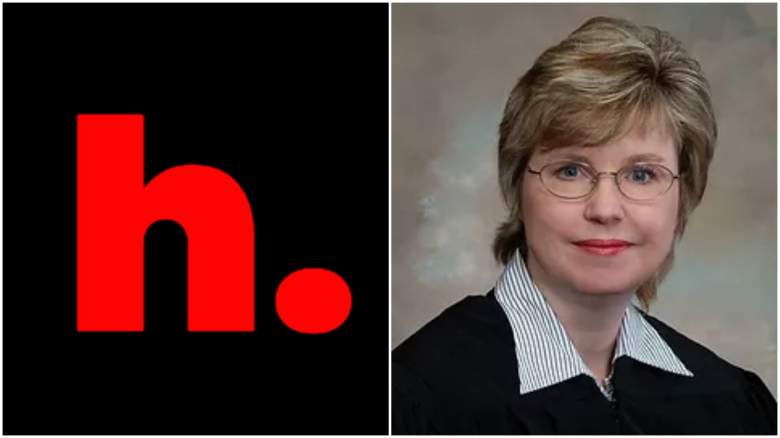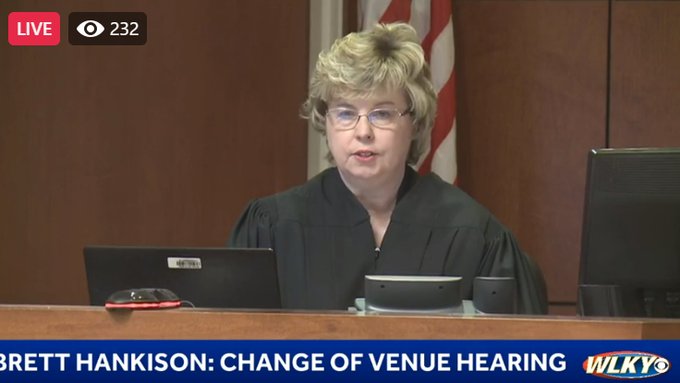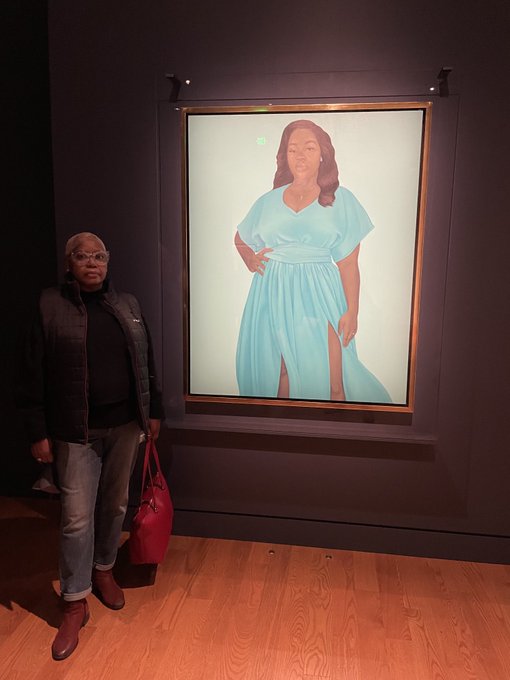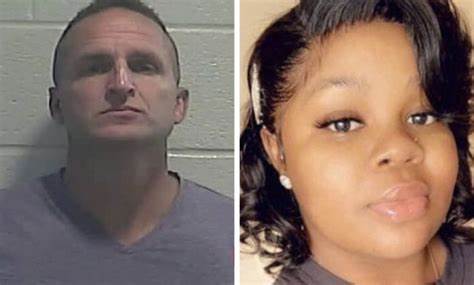
Jefferson County Circuit Court Judge Ann Bailey Smith.
Judge Ann Bailey Smith is presiding over the Brett Hankison trial. Smith is the Division 13 judge in Jefferson Circuit Court in Louisville, Kentucky.
Hankison is a former Louisville Metro Police officer who is facing charges related to the Breonna Taylor case, but his charges are not directly related to her death. Hankison was involved in the raid on her home March 13, 2020, and is facing three counts of wanton endangerment, a Class D felony. He is accused of firing shots into a neighbor’s home. Hankison is the only officer charged in the case.
Here’s what you need to know:
1. Smith Spent Most of Her Career as a Public Defender & Represented a Woman Accused of Murdering Her Husband Following Years of Abuse
Smith spent the majority of her career with the Public Defender’s Office and ran for judge after serving for 20 years in law, she said in an interview with the Kentucky Appellate Survey. In her time with the Public Defender’s Office, she served as an attorney in several landmark cases, according to her profile on Citizens for Better Judges.
Early in her career, she represented juveniles accused of crimes. She served as co-counsel for Major Crane, a 16-year-old boy accused of murder. Smith was among the attorneys who fought to suppress his confession, due to the length of time the teen faced police questioning and the methods of questioning. The case went to the U.S. Supreme Court, which ruled unanimously in favor of the defense in 1986, according to the court opinion.
Smith also represented Valerie Wallace at a death penalty trial. Wallace was accused of murdering her husband after suffering years of abuse at his hands, according to her profile on Citizens for Better Judges. Wallace was ultimately acquitted.
2. Smith Is Married & Has 4 Children; She Is a Lifelong Louisville Resident Who Has Won Several Awards
Smith has been married for more than 20 years to her husband, Leo G. Smith, according to her profile on Citizens for Better Judges. She has four children, two boys and two girls. Their ages are 13, 16, 17 and 19, her profile says.
Smith is a lifelong resident of Louisville, her profile says. She completed her undergrad at the University of Louisville and studied abroad for a semester at the University of London before returning home to study at the Brandeis School of Law at the University of Louisville. She earned her Juris Doctorate Degree in May 1982, her profile says.
She also earned several awards during her education and her career in law, her profile says. In 2002, she was the recipient of the Gideon Award, which was established by the Department of Public Advocacy for her work on the landmark U.S. Supreme Court decision, “awarded to the person who has demonstrated commitment to equal justice and who has courageously advanced the right to counsel for poor people in Kentucky,” her profile says.
She said in an interview with the Kentucky Appellate Survey that she was looking forward to the birth of two grandchildren, who were expected at the time.
“In my personal life, I am very much looking forward to becoming a grandmother for the first time in December and then for the second time in January,” she said. “Life is good.”
3. Smith Was Elected to an Eight-Year Term That Began in 2015 & Was Admitted Into the Kentucky Bar Association in 1982
Smith was admitted into the Kentucky Bar Association in 1982 and has no record of public discipline, according to public records.
Smith is nearing the end of an eight-year term that began January 15, 2015, and ends January 1, 2023, according to Ballotpedia. She was elected to serve as a a judge of the 30th Circuit Court in Jefferson County, Kentucky in 2014. Smith received 61% of the vote that year, Ballotpedia reported. She was running against Sandy Berman, who Smith defeated in the general election. Smith was the incumbent in 2014, having already served a four-year term.
She said in an interview with the Kentucky Appellate Survey that she was planning to run for reelection at the end of her term in 2022.
“I am perfectly content with where I am in my career. I look forward to coming to the Judicial Center each day,” she said. “This term ends in 2022 and I have every intention of seeking a second term on the circuit court bench.”
4. Smith First Went to College as a Piano Major & Then Changed Her Degree to English With a Focus on Teaching
Smith had a circuitous route to her law career, she said in an interview with the Kentucky Appellate Survey. She studied at Morehead State University for two years, majoring in piano, but determined a career as a pianist was not very practical, she said in the interview.
“While I enjoyed my time at Morehead and loved playing the piano, I realized that job opportunities as a pianist were limited and I would probably not be able to afford to keep a roof over my head,” Smith said.
She transferred to the University of Louisville and majored in English with plans to become a teacher, she said. But while student teaching, she realized teaching may not be her intended path. She applied to law school, and her skill and interest was quickly apparent. She won a competition in her second year. She began clerking in the appellate division of the Public Defender’s Office and “became a trial transcript junkie,” she said.
“Every opportunity that I had, I would go to the courthouse to watch criminal jury trials. It was a great learning experience reading trial transcripts and watching lawyers in action. I transferred to night school for my third year of law school so I could work more hours at the Public Defender’s Office,” she said, where she would spend the majority of her career.
Her father was an attorney who worked for Chevron, and her mother was a stay-at-home mom who raised Smith and her two younger siblings, Smith said in the interview.
5. Smith Ordered the Questioning of Prospective Jurors Would Remain Open to the Public
Smith denied a motion from Hankison’s defense attorney, Stew Mathews, ordering that the questioning of jurors would remain open to the public, according to the Courier-Journal. Read more about Mathews here. While Smith denied Mathews’ motion to bar the public and news media from watching the questioning, she imposed some limitations, ordering that no photo or video would be permitted inside the courtroom, the newspaper reported at the time of the decision in late January 2022.
She said that she determined the “narrowly tailored limitation” should be granted due to the “extensive media coverage this case has generated,” according to the Courier-Journal.
“Jurors will individually take the witness stand and submit to questioning by counsel, a process that is inherently intimidating to a lay person,” she wrote in the order, according to the newspaper. “The court finds that jurors will be likely to be less intimidated by this process, and therefore more likely to be candid in their responses, if they know there is no possibility that the general public and the media present at the proceeding have the ability to broadcast or otherwise record their testimony.”
READ NEXT: Stew Mathews, Brett Hankison’s Attorney: 5 Fast Facts





